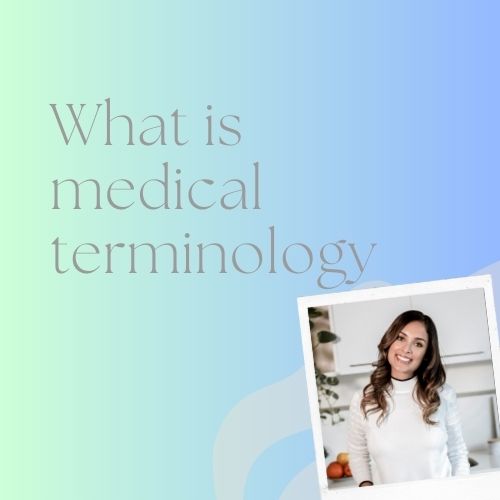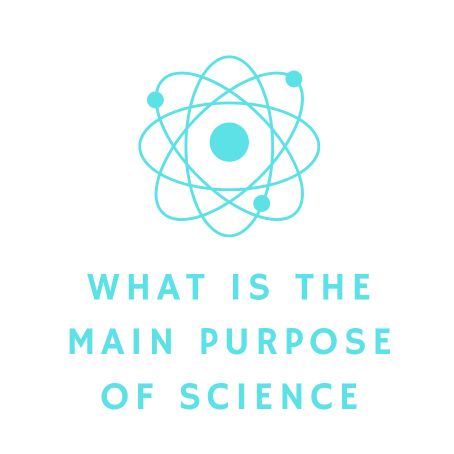Such meaning engages the human body, its diseases, various procedures, and possible treatments. In the same vein, such language assists in eliminating any possibility of ambiguity between practitioners to increase the likelihood for patients to receive the right diagnosis and treatment.
Any practitioner in the medical field needs to have a basic grasp and understanding of medical language as it allows him or her to read and write medical history in documents and assists in communication with other medical professionals. Where it All Started – Components of Medical Language Medial language is said to have derived from ancient languages,
which have been identified to be Latin and Greek. This is because the said languages were vital to history and focused more on describing anatomy and medical ideas. With respect to medical terminology, it consists of three components which can be discussed as follows: Prefixes: They are kind of English attachment placed before a given word in order to add meaning to it and take a word deeper for example, a prefix “hypo” signifies below and in this instance, when one speaks of hypoglycemia it means low sugar levels in blood.
Root Words: They comprise the essence of a given term because its primary meaning is attached to them, the best example being “cardi” term where it refers to a heart for instance in cardiology that studies the heart itself. Suffixes: These are special additions to a word to show a condition, process or a disease for instance the suffix ‘-itis’, which means inflammation, as seen in the word “arthritis” that means inflammation of the joints. Knowing the relationship between these elements helps health care workers to resolve sophisticated medical language
. In relation to this interdisciplinary definition propelled from the word gastroenteritis, one might argue that gastritis is a composed term along the lines of ‘gastro’ referring to stomach and ‘enter’ describing the intestines with the suffix ‘itis’ meaning inflammation, thus meaning both organs are inflamed. Importance Of Medical Language There are numerous reasons why medical terminology is important, among them include:
Living in a Whole New World: Communication is an important aspect in health care, It is the surest way to avoid health errors. It is here medical terms come handy as they act as lingua franca with the aim of lessing certainty and making sure every person who takes part in the management of the patient understands the case and what the patient is diagnosed with and is willing to offer.
Time-Saving: Medical history, diagnosis and treatment is mostly relied on by patients’ documents in a certain manner. Such uniformity ensures that care is not interrupted especially in cases when many doctors surround the patient. Internationalization: Most of medical terminology is derived from latin and greek and therefore acts as an international language which cuts across national and language barriers,
this uniformity is important for the purpose of global cooperation in research and practice. Revamping Education and Research: Medical students and researchers require a good command of medical vocabulary. It helps them in comprehending textbooks, research papers as well as clinical policies. A Few Common Medical Terminology Anatomy Cranium: The brain case or head. Femur:
The bone of the leg that is in the thigh. Thorax: Chest, where ribs are located. Numerous medical words need to be learned along with their respective meanings, which makes learning medical terminology extremely difficult. Nevertheless, there are ways to simplify the process: Deconstructing Words:
When a medical term is unknown, knowing the common prefixes, root words and suffixes or combining the root words can help in figuring out the whereabouts of the word. Using Flash Cards: These are great for learning the names of terms and their defined meanings. Practice Makes Perfect: Using medical terms regularly in a given context facilitates the memorization process. Interactive Tools: Apps and websites have provided quizzes and games to make learning interesting. Relevance of Medical Terminology This set of language is applied in different areas of health care: Clinical Settings: It is used by doctors, nurses and other practioners to talk about the treatment of patients. Pharmacology: Education of terminology is equally vital in the cases of writing and talking about medicines. Medical Coding and Billing: Specialized vocabulary is used by coders to convert health services and health conditions to economic codes for reimbursements.
Research and Development: Specialised vocabulary and terms are used to explain the results and the relative development of newer drugs. Conclusion Medical language is one of the most useful languages in the field of health since it is best practiced and primary tool in language for communication, documentation and international operations within the health sector.
One may think that it is so difficult to learn, but in reality, the knowledge of its structure and logic means a lot for the chances of success in medical profession. The sphere of medicine changes practices but also changes language with the changes and the practices but also with the discoveries. For those who wish to practice as health care providers the learning of the medical language is one of the prerequisites to be professionally competent and great.
How do I learn medical terminology?
how many years is agronomy at unza
Here’s a comprehensive post about the scope and duration of studying Agronomy in the University…
What is medical terminology
Such meaning engages the human body, its diseases, various procedures, and possible treatments. In the…
What is the future of Pakistan economy in 2050
Pakistan’s Economic Prospects in 205 Future prospects appear to be both promising and somewhat daunting…
Main aim of science is to create knowledge which is based on three parameters: observation,…
Mastering The Medical Terminology
Medical Terms Explain The Procedure
For example, the term “cardiocentesis” is divided into three essential components, which include – “cardi”, which means Heart, “cena”, which means to Puncture and the suffix “-sis,” which means Condition.
- “hypoglycemia” The prefix ‘hypo-’ which in our example means “sugar level tends to be less than the other day which is below normal to certain extent,” explains the condition.
- Another prefix, -itis, explains the inflammation of a condition, for example arthritis.
Terms can always be broken down into three components, which include; A root word, A prefix and suffix which provides a lead into understanding the concept behind the word, even though it may be the case that the word is new to you.
Utilize flashcards
For as long as one can remember, there is the use of flashcards in order to enhance memory. On one side the medical word can be written and the effect or meaning can be put on the opposite side. Depending on the user, one may include the guide alongside words. Using Anki or Quizlet flashcard apps makes studying fun because one is not restricted to their desk and can study from anywhere. Don’t Forget About Mnemonics!
Mnemonics is what they call memory techniques for complicated order sequences. Some of them are:
- A sentence that has a description to help with remembering the cranial nerves is, ‘On Old Olympus’s Towering Top, A Finn And German Viewed Some Hops.” In order to remember the first letters of that sentence and the order of the cranial nerves, the first letter of each word will be a substitute.
- Pronounce “-ectomy” which is often used as a medical suffix as “cutting away” especially in usage when describing a surgeon.
Take a medical terminology course
As per the term structure, they are meant to assist in the learning process and for students with the help of a teacher. Such courses can be enrolled at many community college studied and even at some universities. Other online sites are also well known as Coursera, Udemy, Khan which is of lower price and offer these services as well.
Practice with Real-World Material
Articles published in medical journals, case studies, or any stories related to medicine have the potential to familiarize you with medical vocabulary in its practical setting. Equally, some people learn by watching related shows, although one should be careful about the representation of the language in such cases.
Use Medical Terminology Apps
Many applications assist with learning terms associated with the medical profession. Some of the popular ones are:
- Medical Terminology Quiz: Another favorite for many who want to test themselves.
- Complete Anatomy: Includes interactive aids for various anatomical terminologies.
- Taber’s Medical Dictionary: Explains medical words with definitions and descriptions.
Engage in Group Study
Learning among colleagues may easily become lively by virtue of interaction. Besides that, group brainstorming, quizzes, or peer teaching will improve your comprehension. The act of providing comprehension to a term to an individual enhances the chances of you embedding it in the memory.
Create a Learning Schedule
There are set times to study new vocab. Structure yourself in a way that strengthens your learning. For example:
- Monday: Learning prefixes
- Tuesday: Focusing on the root word
- Wednesday: Learning the suffixes
- Thursday: Reviewing the practices done
Dividing the workload into smaller parts can prevent the feeling of being stressed and will increase memory retention.
Techniques For Visual Learning: A Brief Outline
Visual learners, including expanding on several visual elements, may support specific concepts and language learning. For example, videos, and drawings together with anatomical charts and labeled diagrams provide a sense of visuals relations to terms and their meanings. Even better can be the process of drawing your own diagrams and enclosing the required labels.
Talk It Out: Say it Out Loud
In cases where one is expected to practice a certain profession likely in a physician’s practice, it could be very useful to pronounce words correctly. Most of today’s apps and even medical dictionaries offer pronunciation instructions through audios. In addition, attempt to say the words out loud while practicing in front of a mirror or speak to text tools.
Prioritize The Right Words: Focus On Most Used Words
As some medical commonly say not all big words are necessary to articulate. That is why aim more towards the most commonly mentioned words in your field of interest. For instance, if you’re doing a shift as an intern nurse make it a priority for you to remember the words medication and patient.
Don’t Skip The Dailies: Schedule, Time, And Consistency Is Key
Varying intervals, the key or most prioritized words need to be repeated over time. It is essential to not only aim for understanding but for retention of what you’ve learned. Focus on spaces that allow for longer intervals or daily quotes that offer flash quotes in between.
Make Use of Etymology
Looking back at the origin of some medical terms can help you understand them better. This is because most terms come from Latin or Greek. For example;
Engaging Games And Quizzes
The language can often take a long time to master, but incorporating gaming aspects will help to eliminate some of the tedium. Many sites and apps have games, quizzes, and puzzles that can keep you entertained while you learn terminology.
Be Equipped with a Medical Dictionary
Every medical student or practitioner ought to have a good medical dictionary at their disposal. Whether it is “Taber’S Cyclopedic Medical Dictionary” an actual one or in pdf format, the point of having a ready book is to make your learning easy.
Be Consistent and Do Not Be In a Hurry
As many would expect, mastering the art of medical terminology is not going to be a day job. It is very common for many to get anxious when they are getting started, but as they say where there is a will there is a way. In this case, every little accomplishment such as learning a new set of words will help you stay focused.
Conclusion
There is no doubt that learning medical terms is very difficult but at the same time it enables one to have access to various career opportunities specifically within the healthcare sector. One may be able to accomplish this goal by using different strategies like using memory flash cards, enrolling in courses, developing an understanding of the parts of the medical terms, and putting in regular practice. By means of diligence, discipline and practice having knowledge of medical language will become second nature to you in no time.
how many years is agronomy at unza
Here’s a comprehensive post about the scope and duration of studying Agronomy in the University…
What is the main type of farming in China?
Agriculture in China is believed to have its roots in subsistence farming as it has…
what is Role of Agronomy
The Systems of Agronomy in Contemporary Farming Agronomy is the science that studies and practices…
what is Definition Agronomy
: A Simple Definition and Overview Agronomy is defined as the science and practice of…







